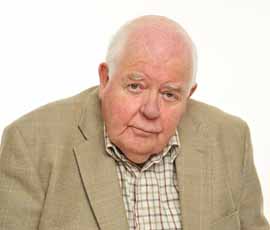Political exception proves the rule

It’s not natural for me to applaud politicians. In my experience, most are self-seeking individuals whose chief preoccupation is to hold on to their seat in the sun who will agree to almost anything they think will secure your vote. There are a few exceptions, guided more by conviction than the pursuit of power and I exclude them from those comments. I may have listened to one of those exceptions last week.
George Freeman was elected to parliament at the last election to represent mid-Norfolk. Previously he worked, briefly, for the NFU as a parliamentary officer, in the run-up to the 1992 CAP reform. He went on to work on life sciences at Cambridge before quitting when elected. This hands-on experience has doubtless influenced his swift advancement. He is adviser on life sciences to David Willetts, the science minister, and chairman of the All Party Parliamentary Group for Science and Technology.
Last week at the John Innes Centre (JIC) near Norwich he was one of the speakers at the Norfolk Farming Conference. He praised the world-class research being done at the JIC, comparing it to the pioneering developments of Norfolk farmers and landowners in the agricultural revolution of the 18th and 19th centuries. He said life science represented a huge opportunity for Norfolk to contribute to the challenge facing agriculture as demand for food grew over coming years. To that extent, it could be argued, he was sucking up to his constituents.
But he went on to advocate in the strongest terms I had heard from a British politician the urgent need for genetic modification to be used in this country and across Europe.
“GM crops had been shown to increase the yields of a range of crops around the world by between 6% and 30%”. “Their cultivation,” he went on, “had significantly reduced the quantities of pesticide used.”
He quoted evidence that 29 countries now use GM seeds and that small farmers, many in developing countries, as well as bigger operators, were taking up the technology. He said 15 million farmers on 10% of the arable area of the world were now growing GM crops and that last year this totalled 160 million hectares. Further, two trillion meals containing GM ingredients had been consumed over the last 15 years without one health problem being identified.
Indeed, the antis had virtually stopped criticising biotechnology because of its supposed dangers, he suggested, and now concentrated on the fact that the corporations developing and selling GM seed were multi-national fat cats. That is, of course, undeniable, but they are the only ones with sufficient resources to undertake the work associated with the necessary research and development.
Meanwhile, as NFU president Peter Kendall and AHDB chief scientist Ian Crute both pointed out at the same event, British and European farmers continue to be denied the chance to use the technology. And all the while the British public are consuming huge quantities of GM food ingredients in imported products.
Over the next 10 years, George Freeman said, farm productivity in the USA will increase 15-20% because of biotechnology, Brazilian agriculture will produce 40% more and the EU might make 4% if we’re lucky.
It’s time this ridiculous situation came to an end, and when an influential government adviser says such things in public without fear of leaving hostages to fortune it means he’s had the government’s blessing to do so.
Maybe the light at the end of the tunnel is getting brighter.
David Richardson farms about 400ha (1000 acres) of arable land near Norwich in Norfolk in partnership with his wife, Lorna. His son, Rob, is farm manager.
What do you think about the future for GMs? Have your say on our website forums.
